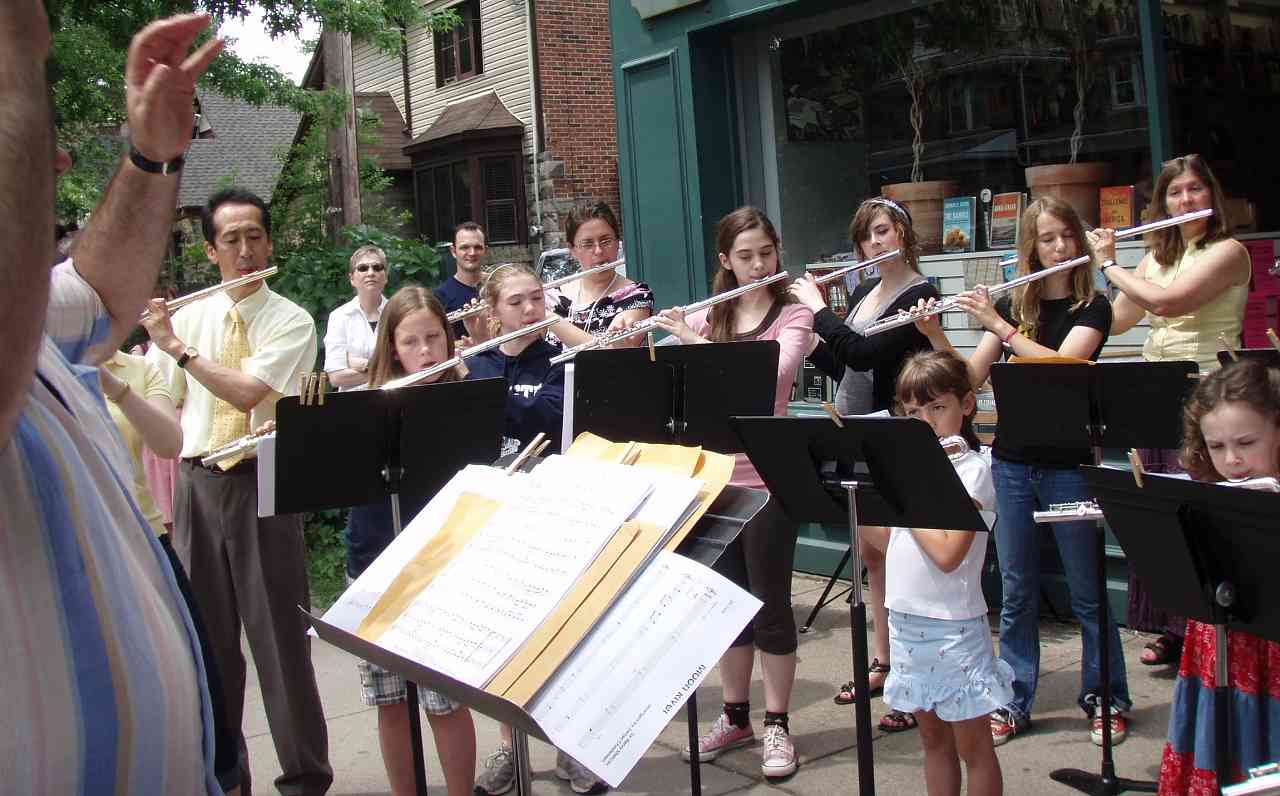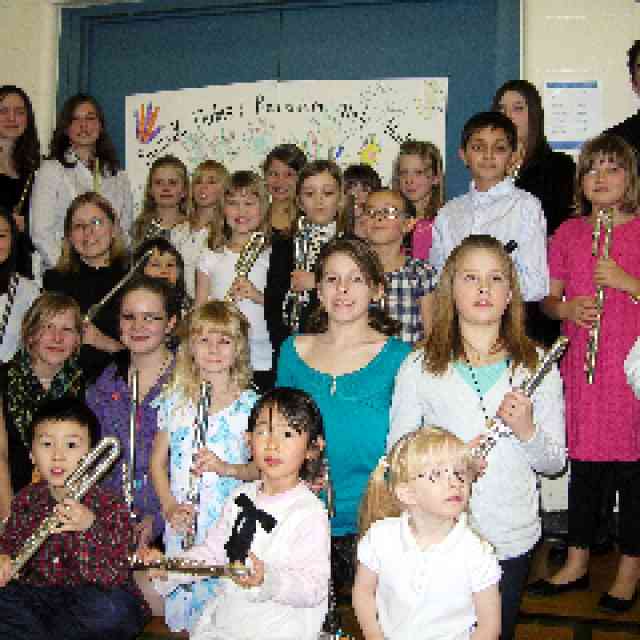
Check out this great article about the Great Lakes Institute in Hamilton, Ontario:
Soothing Sidewalk Serenade
JEFF MAHONEY
THE HAMILTON SPECTATOR
Jul 14, 2009
For a magical hour every July, pedestrians and motorists along King Street West in Hamilton feel a breeze of flute, recorder and violin to pacify jangled urban nerves.
Call it an annual flute shot. The music is a charm against the daily hustle, deadlines and idling engines at stoplights, with smiles conjured onto the faces of passersby.
This is a tradition of the Great Lakes Suzuki Flute and Recorder Institute, which is run out of McMaster University. For the past three years the children and adults in the institute’s summer program deploy themselves around the entrance to Bryan Prince Bookseller at 1060 King St. W., and run through a lively set of tunes under the spirited baton of David Gerry, director of the institute.
And so last Friday there they were again, the 2009 cohort—some with grey hair, others with little stuffed animals slung around their arms as they played. They come from all over the continent. New York City, Oregon, Quebec, even Bermuda.
That is the drawing power of the institute, which is sponsored by the McMaster University Institute for Music and the Mind as part of its outreach program.
The Great Lakes Suzuki Flute and Recorder Institute is designed to teach both students and music teachers. The 40 or so participants don’t have a lot of time together, but do they ever make the most of it.
By the time they hit Bryan Prince Bookseller, they had been playing together only four days. Yet they sounded tight and well rehearsed.
Their repertoire included such delights as Fireflies On Broadway, Scarborough Fair, a selection from the Broadway production of The Lord of the Rings, and the Jazz Twinkle (a jazzy version of Twinkle, Twinkle, Little Star).
“Next year they’ll be playing Jethro Tull,” one passerby was heard to say, alluding to the veteran band that featured Ian Anderson’s flute prominently.
Seven-year-old Georgia Klein came all the way from New York City to take part in the two-week program at Mac, and enjoyed playing on the street outside the bookstore. After all, it was a paying gig. There were cookies after the show.
“This is our first year in the program,” said her mother, Lindsay Klein. “It’s got a great reputation, even in New York City.”
Kelly Williamson is a London music teacher who has been coming to the program since 1996. She says she wouldn’t miss it for anything.
Laurel Trainor was there, playing her flute. A psychologist and neuroscientist, she’s the director of the McMaster University Music and the Mind Institute. And if the brief street concert had a beneficial effect on the spirits of those who heard it, she is interested in why.
The institute researches how music works in and on the mind.
“Why do young kids who play music develop better memory and attention focus?” asks Trainor.
The most compelling hypothesis, she says, is that music involves so much function—both mental and physical, not to mention emotional.
The playing and learning of music requires a combination of memory, imitation, creativity, physical dexterity, mathematics and other aspects of cognition.
What’s more, she adds, actively playing music is far more beneficial than passively listening to it.
We stand to learn a great deal more about the relationship between music and the mind in Hamilton as the McMaster University Music and the Mind Institute just received word that it has won a $6-million grant from the Canada Foundation for Innovation.
“Most of that money will go to building a performance lab where we can measure the brain waves of multiple performers as they play music together,” says Trainor. “We’ll monitor both the players’ and the audience’s responses.”







